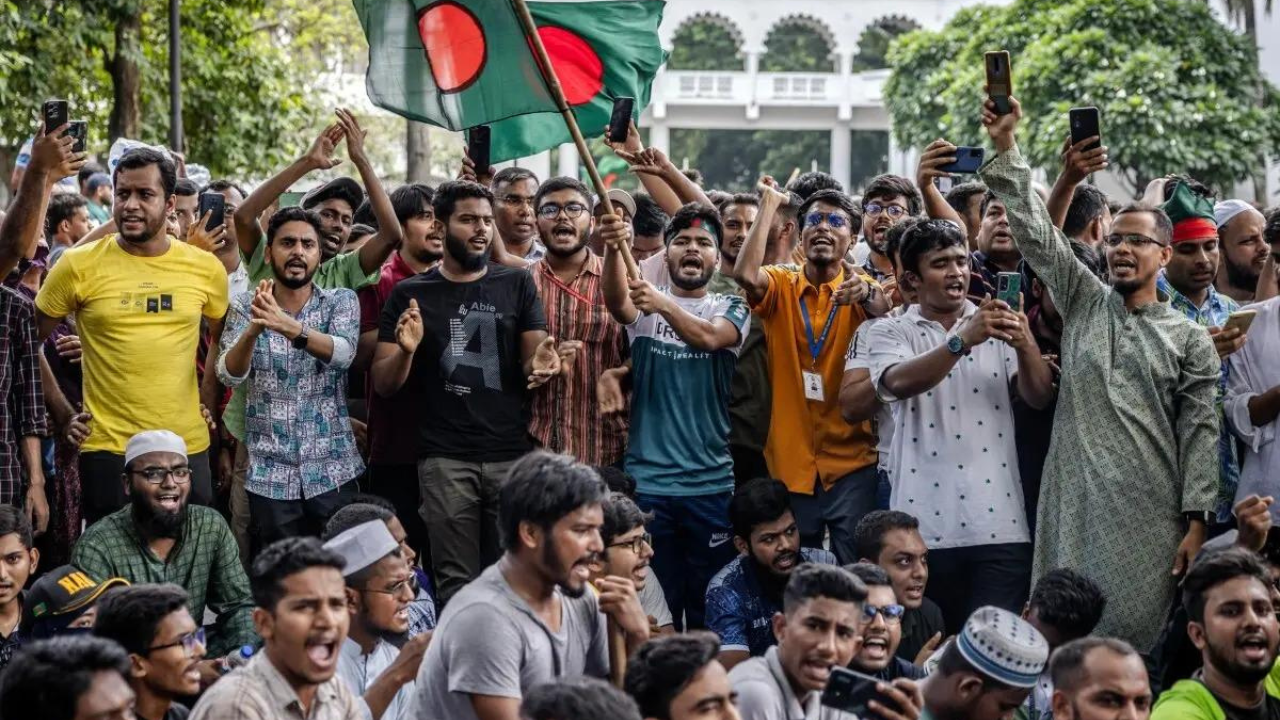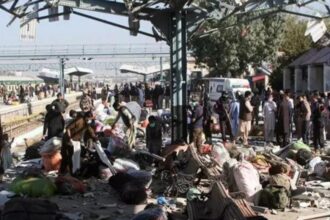Chief justice Obaidul Hassan of the Bangladesh Supreme Court resigned from his position on Saturday, following protests by students who demanded the resignation of the chief justice and judges of the Appellate Division by 1 pm, as reported by media outlets.
“I feel it is necessary to share a special news with you. Our chief justice has resigned a few minutes back.His resignation letter has already reached the law ministry. We will send it to the president without delay for taking necessary measures,” Asif Nazrul, law, justice and parliamentary affairs adviser to the interim government, said in a facebook post.
Obaidul Hassan, the chief justice of the Supreme Court, was instructed to resign by demonstrators who assembled near the court building in Dhaka, the nation’s capital. Hassan, who was selected to lead the Supreme Court last year, is perceived as a Hasina loyalist.
On July 4, chief justice Obaidul Hasan made remarks during the hearing of the Appellate Division on the high court verdict on quota saying, “Why have so many movements begun on streets? Will you change the verdicts of the high court and the Supreme by exerting pressure through the movement?”
Initially, chief justice Hassan called for a full court meeting with all justices from both divisions of the Supreme Court. However, the protesting students perceived this as a judiciary coup and announced their intention to besiege the High Court premises. In response to the student protest, Chief Justice Hassan postponed the meeting and later announced his decision to step down.
The chief justice announced his decision after protesters from the Anti-Discrimination Student Movement gathered at the court premises. Hasnat Abdullah, a coordinator of the movement, issued an ultimatum calling for the resignation of the chief justice and the justices of the Appellate Division, threatening to besiege their residences if their demands were not met, as reported by The Daily Star.
Asif Nazrul, serving as the law advisor to the interim government, addressed journalists at the Secretariat. “We hope the chief justice will understand when a demand for resignation comes from the mass movement and how to honour that demand,” Prothomolo quoted Nazrul as saying.
As hundreds of protesting students gathered at the Supreme Court premises, Bangladesh Army personnel were deployed to maintain order. The army personnel were stationed in the main building, annexe building, and other areas around the Supreme Court. They urged the protesters to maintain peace and refrain from damaging government property.
Following the resignation of prime minister Sheikh Hasina, who fled to India on Monday amid political turmoil in Bangladesh, 84-year-old Nobel laureate Muhammad Yunus was sworn in as the head of an interim government on Thursday.
His government is expected to announce fresh elections after restoring law and order, following the deadly anti-government demonstrations against the Hasina government that had led to widespread violence, which is now subsiding.
“I feel it is necessary to share a special news with you. Our chief justice has resigned a few minutes back.His resignation letter has already reached the law ministry. We will send it to the president without delay for taking necessary measures,” Asif Nazrul, law, justice and parliamentary affairs adviser to the interim government, said in a facebook post.
Obaidul Hassan, the chief justice of the Supreme Court, was instructed to resign by demonstrators who assembled near the court building in Dhaka, the nation’s capital. Hassan, who was selected to lead the Supreme Court last year, is perceived as a Hasina loyalist.
On July 4, chief justice Obaidul Hasan made remarks during the hearing of the Appellate Division on the high court verdict on quota saying, “Why have so many movements begun on streets? Will you change the verdicts of the high court and the Supreme by exerting pressure through the movement?”
Initially, chief justice Hassan called for a full court meeting with all justices from both divisions of the Supreme Court. However, the protesting students perceived this as a judiciary coup and announced their intention to besiege the High Court premises. In response to the student protest, Chief Justice Hassan postponed the meeting and later announced his decision to step down.
The chief justice announced his decision after protesters from the Anti-Discrimination Student Movement gathered at the court premises. Hasnat Abdullah, a coordinator of the movement, issued an ultimatum calling for the resignation of the chief justice and the justices of the Appellate Division, threatening to besiege their residences if their demands were not met, as reported by The Daily Star.
Asif Nazrul, serving as the law advisor to the interim government, addressed journalists at the Secretariat. “We hope the chief justice will understand when a demand for resignation comes from the mass movement and how to honour that demand,” Prothomolo quoted Nazrul as saying.
As hundreds of protesting students gathered at the Supreme Court premises, Bangladesh Army personnel were deployed to maintain order. The army personnel were stationed in the main building, annexe building, and other areas around the Supreme Court. They urged the protesters to maintain peace and refrain from damaging government property.
Following the resignation of prime minister Sheikh Hasina, who fled to India on Monday amid political turmoil in Bangladesh, 84-year-old Nobel laureate Muhammad Yunus was sworn in as the head of an interim government on Thursday.
His government is expected to announce fresh elections after restoring law and order, following the deadly anti-government demonstrations against the Hasina government that had led to widespread violence, which is now subsiding.
Source : Times of India






